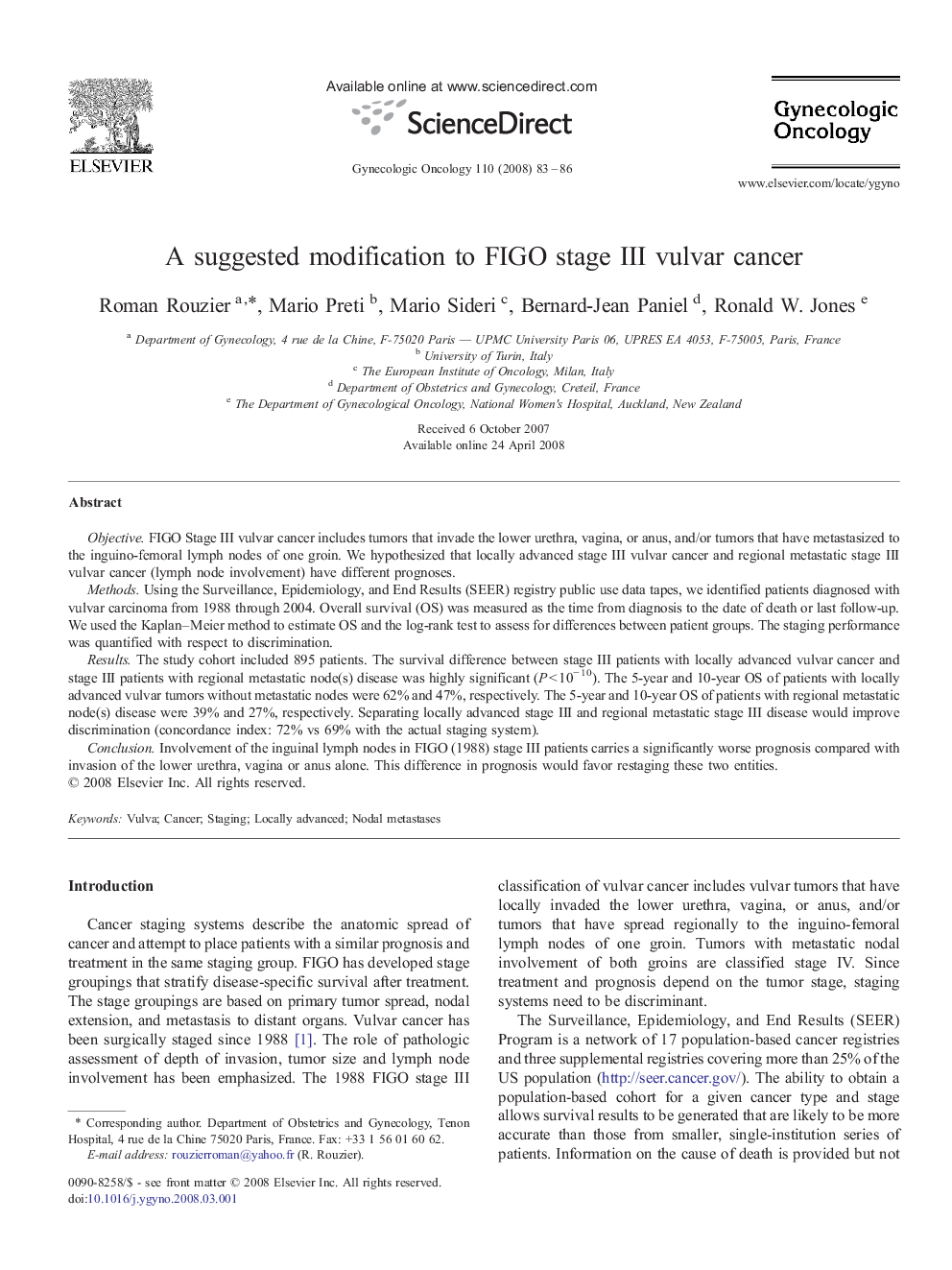| Article ID | Journal | Published Year | Pages | File Type |
|---|---|---|---|---|
| 3944649 | Gynecologic Oncology | 2008 | 4 Pages |
ObjectiveFIGO Stage III vulvar cancer includes tumors that invade the lower urethra, vagina, or anus, and/or tumors that have metastasized to the inguino-femoral lymph nodes of one groin. We hypothesized that locally advanced stage III vulvar cancer and regional metastatic stage III vulvar cancer (lymph node involvement) have different prognoses.MethodsUsing the Surveillance, Epidemiology, and End Results (SEER) registry public use data tapes, we identified patients diagnosed with vulvar carcinoma from 1988 through 2004. Overall survival (OS) was measured as the time from diagnosis to the date of death or last follow-up. We used the Kaplan–Meier method to estimate OS and the log-rank test to assess for differences between patient groups. The staging performance was quantified with respect to discrimination.ResultsThe study cohort included 895 patients. The survival difference between stage III patients with locally advanced vulvar cancer and stage III patients with regional metastatic node(s) disease was highly significant (P < 10− 10). The 5-year and 10-year OS of patients with locally advanced vulvar tumors without metastatic nodes were 62% and 47%, respectively. The 5-year and 10-year OS of patients with regional metastatic node(s) disease were 39% and 27%, respectively. Separating locally advanced stage III and regional metastatic stage III disease would improve discrimination (concordance index: 72% vs 69% with the actual staging system).ConclusionInvolvement of the inguinal lymph nodes in FIGO (1988) stage III patients carries a significantly worse prognosis compared with invasion of the lower urethra, vagina or anus alone. This difference in prognosis would favor restaging these two entities.
